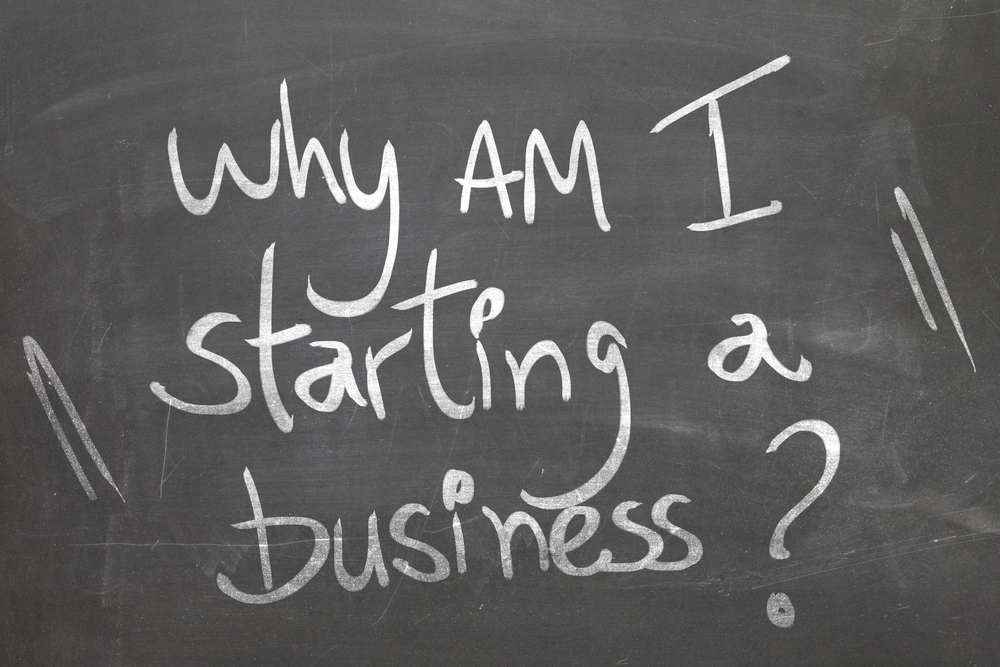People go into entrepreneurship for different reasons, whether it is from the desire to become their own bosses or to get away from their unfulfilling corporate jobs or the drive to solve an existing problem. Whatever your reason for embarking on the entrepreneurial journey, the fact still remains that starting a business is hard.
Especially in this part of the world where basic infrastructures to help small businesses are lacking. It takes courage, hard work, skills and perseverance to be successful.
While it is difficult to plan for every possibility and challenge that may occur, you can get yourself on the path to success by asking yourself these ten questions before taking the plunge.
Am I cut out to be an entrepreneur?
There has always been a debate on whether entrepreneurs are born or bred.
“I have mentored a lot of people who weren’t necessarily born to be entrepreneurs but today they are entrepreneurs. I believe that it depends on you finding that eureka moment where your solution works. For me that’s entrepreneurship — trying to solve a problem and getting it monetized. I don’t believe there’s anyone person that is made to be an entrepreneur”– Simeon Ononobi– Founder and CEO of SimplePay.
Do you feel you were born to be your own boss or you feel that you have acquired enough skills to make it on your own? Whatever the case may be, successful entrepreneurs are naturally independent, resourceful and do not need anyone to hold them accountable in order to be efficient and productive.
If you are someone who needs constant guidance and motivation from others then my advice to you is to not quit your day job; entrepreneurship may not be for you.
Suggested Read: Hard truths for the aspiring Nigerian entrepreneur
Why am I starting a business?
You have to ask yourself if the motive is as a result of your passion for making a difference or just about making money. If your reason for starting a business is to become instantly rich then you are in for a rude awakening because most businesses are not profitable immediately.
“I would say that nothing beats the passion and desire to solve a problem so hard that you believe you can do it better than anyone who has been doing it for years”– Fikayo Ogundipe, CEO and Co-founder of ToLet
Starting a business you are passionate about is great as long as you do not allow your passion to cloud your judgement. If it cannot be profitable, it is best you pursue it as a hobby. After all, what is the point of putting so much work into a business if it would not be profitable?
Is this really a good time to start a business?
When it comes to starting a business, your timing can make the difference between success and failure. While there will never be a perfect time to start a business, launching too late or too early could lead to eventual failure of your venture.
“I know someone who tried to build a similar business in 1999 and it never worked. Some markets take a while to get ripe but when they are ripe enough, even a substandard product will get massive traction”– Fikayo Ogundipe, CEO and Co-founder of ToLet
It is best to start a business when you have your finances organized, a backup plan for when things go south and the support to work longer and harder while you keep things going.
You have to be able to put up a financial plan that would enable you to bootstrap your business for at least 6 months because chances are you may not get investors within this period and beyond.
But more than the market, is the timing right for your personal life? Will you be able to pursue your dream without compromising your relationships and health?
What problem will my product solve?
The eventual success of your business lies in the hands of your customers. If your business is not solving any real problems, then you have to go back to the drawing board.
The most successful businesses are so because they have been able to tailor their products to meet their customers’ needs; this is what determines your value as a business.
“You must want to add value to the people, not just sell your products. And even after they pay, if they did not get the value they were expecting, you must be willing to refund their money. In short, always have the customer in mind”– Leke Ojikutu, Founder and CTO of VoguePay
Find out all you can about other products similar to yours. Knowing what the competitions look like will help you determine how to make your product offer something better to your customers.
You have to be innovative and flexible to achieve this; to give your customers reasons to choose your product over your competitors’.
What resources do I currently have to get started?
It has often estimated that 80-90% of startups fail within their first two years. To give your startup a fighting chance, you have to lay a solid foundation.
Before you venture into business, ask yourself if you have enough money, skills, knowledge and support that your business can survive on before it comes profitable. Founders who carefully identify and evaluate their resources in pursuit of a well-defined goal are able to achieve success.
Prior to starting your business, it is advisable to seek out the right education to help you manage your business efficiently. It is no surprise that many successful entrepreneurs irrespective of their backgrounds, take business management classes to help them better run their businesses.
“My transition from engineering to finance was deliberate. I made the move based on passion, interest and a desire to get the kind of education I felt was important”– Kola Aina, Founder of Emerging Platforms.
How do I handle rejection and disappointment?
When you are deeply invested in what you do, it is hard not to take each rejection and disappointment personally. However, as an entrepreneur, you have to prepare yourself for lots of bad news and being resilient will help you through the hardship and make you a better entrepreneur.
“When I started SimplePay, I heard a lot of “no”s. So I was always getting to that juncture were I felt it wouldn’t work and maybe I should leave the guys already doing payments do what they do. But I’m one person that always tries one extra day. I don’t care how many days that translates to. If it doesn’t work today, maybe we just try tomorrow”– Simeon Ononobi, Founder and CEO of SimplePay
In order to predict how you will fare in such a challenging environment, ask yourself how you have previously reacted to setbacks in your life?
If you are someone who is easily discouraged when faced with disappointment and spends time brooding over every rejection, you need to seriously consider the likelihood of you throwing in the towel at the first hurdle.
Can I accept that my company may outgrow me?

“It’s very difficult for you to learn to step back and allow someone else take the credit. I think that’s been the most difficult thing for me to learn”– Gbenga Sesan, CEO of Paradigm Initiative of Nigeria (PIN)
At some point, your business may need you less than you need it; your resources may no longer be enough to run the company. Bringing in the big guns– be it investors or suitable executives– may become a necessity.
You have to, therefore, ask yourself if you will be able to let go of some responsibilities and allow your “baby” to be run by anyone other than you.
This will be incredibly difficult for founders who are too attached to their businesses, however, you stepping back may be what your business needs to achieve success. It is, therefore, better to be prepared for such eventualities from the onset.
Am I ready to change my lifestyle?
Starting a business often means working around the clock with little or no time to socialise; the distinction between work time and personal time begins to blur. Your whole life will be surrounded by your business meaning less time to hang out with your friends and family.
Expect to invest more time in your business, more than you would in a typical job where different people play different roles.
“If you can’t give everything up for your business, and by this I mean money, social life, new clothes, flashy cars and even your health, then you should reconsider life as an entrepreneur”– Jason Njoku, Founder of Iroko
Early in your startup, you would have to wear multiple hats; from marketing, sales, answering phone calls to product development. Are you ready for that?
Do not forget to factor in the emotional energy required to sustain the risks, challenges, and work involved in a small business.
The truth is, if your business is simply what makes you happy, you will quit when things get tough, but if it is an authentic passion, you will be willing to see it through amidst tribulations.
Suggested Read: 6 habits that can dramatically improve your life as an entrepreneur
Suppose my business provides less income than I expected, how long should I stick with it?
There is no right or wrong answer for this. If your business requires spending too much time and money with nothing to show for it then it may be time to step back and re-evaluate.
Pulling the plug will put an end to the wastage of time and resources which could spell doom for your business.
The goal of every business is to make profit, therefore, if it is not living up to expectations, then you may have to kill it and start something new.
Suggested Read: 12 Years a hustler, time to go home
Do I have a plan B?
The estimated failure rate of businesses within their first 2 years is between 80-90%, so you need a backup plan. No one wants to start a business with failure at the back of their mind but the reality is that failure, is in fact, a possibility.
Having a plan B gives you a sense of security and assures you that failure of your business does not mean the end of the world.
Many successful entrepreneurs have failed several times, however, the basis of their success is what they were able to do with the lessons learnt from their failure.
“Long before Gloo, I had a bunch of business that failed. But you learn from experiences like that”–Olumide Olusanya, Founder of Gloo.ng
What is next for you should your business fail? Would you start another business or get a job? Would you regret taking the leap and risking it all if you failed? If the answer is no, then entrepreneurship is probably not for you.
Asking yourself these tough questions ahead of time could mean the difference between success and failure. If you cannot come up with positive answers for some of them, do not be discouraged to follow your dreams altogether. Instead, take necessary steps to address the aspects where you fall short.












